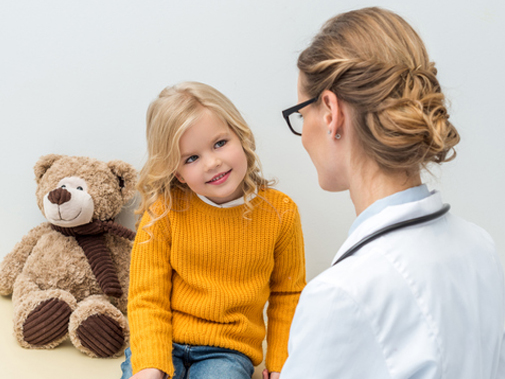Neurodevelopmental Clinic

The Neurodevelopmental Clinic diagnoses and provides follow-up services for children, adolescents and young adults with attention deficit disorders, school problems, autism spectrum disorders, and developmental, behavioral, social-emotional and other disorders. Referrals can be made by parents, physicians, schools or other professionals.
Services
- Neuropsychological testing
- Psychological testing
- Academic achievement testing
- Multi-discipline evaluations through the Multidisciplinary Evaluation Clinic
- Parent information and support groups
- Consultation and review of prior assessments
- Social skills groups
- Evaluation for accommodations for standardized testing (such as SATs)
- Intelligence testing (WPPSI-IV, WISC-IV, WAIS-IV) for private school admissions
Conditions treated
- Attention Deficit/Hyperactivity Disorder (ADHD)
- Reading disabilities, including dyslexia
- Learning disabilities, including math disabilities and nonverbal learning disabilities
- Autism spectrum disorders, including Asperger’s syndrome
- Neurodevelopmental and genetic disorders
- Intellectual disability
- Behavioral disorders
- Social-emotional disorders, including
- Anxiety disorders
- Mood disorders, including depression
- Neurological and cognitive disorders (such as head injury and lead poisoning)
Interview, evaluation and insurance
Find out what to expect during the interview and evaluation sessions, and basic information related to insurance.
Feedback meeting
We typically schedule a feedback meeting with parents and adolescents to discuss the results a week or two after the evaluation. In addition, we discuss recommendations for interventions and support services. Feedback covers:
- Performance in various areas of functioning
- Overall strengths and weaknesses
- Results of behavior and symptom checklists completed by parents, teachers (for elementary school students), and the students themselves.
- Diagnoses (if appropriate)
Report
A written report is mailed to the parent, guardian, or patient (if age 18 or older) containing test results and recommendations.
Follow-up services
- Consultation, for example a review of Individual Educational Plans
- Social skills groups
- Parent information and support groups
- Periodic re-evaluations, as needed

